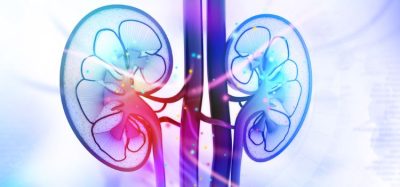Drug approval roundup – May/June 2024
Posted: 27 June 2024 | Catherine Eckford (European Pharmaceutical Review) | No comments yet
This article highlights some of the key regulatory approvals granted in May and June in the EU and US so far this year, including for oligonucleotide and biologic therapies.


Considering recent EU and US approvals, there has been a continued trend of exciting innovative therapies reaching market, demonstrating promise for a range of hard-to-treat-diseases. In May and June, regulatory approvals have so far included treatments for rare disorders as well as in oncology, such as blood, endometrial and colorectal cancers.
Looking back briefly to 2023, within the cell and gene therapy space, the US Food and Drug Administration (FDA) approved marketing authorisations for seven of these treatments. The number was 37, as of April this year.1 One of these approvals was granted to Pfizer, Inc. for the haemophilia B treatment, BEQVEZ (fidanacogene elaparvovec-dzkt).2
Biologic approval
Last week, the European Commission authorised a new biologic therapy option for relapsing and primary progressive multiple sclerosis.
It means eligible individuals can be offered twice-yearly subcutaneous administration as alternative treatment option to intravenous administration. The ten-minute anti-CD20 treatment “makes it easier for more people with multiple sclerosis to access their treatment, while also saving time for providers,” Dr Levi Garraway, PhD, Roche’s Chief Medical Officer and Head of Global Product Development explained.
Approval of this treatment was based on the findings from the Phase III OCARINA II trial.
Immunotherapy in oncology
“The addition of pembrolizumab to chemotherapy represents a new frontline therapeutic option for patients with primary advanced or recurrent endometrial carcinoma”
Moreover, last week saw US regulatory approval of a combination treatment for endometrial cancer: KEYTRUDA (pembrolizumab) plus chemotherapy.
KEYTRUDA (pembrolizumab) together with carboplatin and paclitaxel, followed by KEYTRUDA alone, is indicated for primary advanced or recurrent endometrial carcinoma.
“The addition of pembrolizumab to chemotherapy represents a new frontline therapeutic option for patients with primary advanced or recurrent endometrial carcinoma, demonstrating a statistically significant and clinically meaningful progression-free survival benefit compared to chemotherapy alone, regardless of mismatch repair status,” commented Dr Ramez Eskander, Principal Investigator, Associate Professor in the Department of Obstetrics, Gynecology, and Reproductive Services at University of California San Diego School of Medicine and gynecologic oncologist at Moores Cancer Center at University of California San Diego Health.
Oligonucleotide therapies
In May, Biogen was given approval for the rare disease therapy QALSODY (tofersen) by the European Commission. It was the first treatment approved in the EU to target a genetic cause of amyotrophic lateral sclerosis (ALS).
Findings from the Phase III VALOR study showed that at Week 28, mean plasma neurofilament light chain (NfL) reduced by 55 percent, compared to a 12 percent increase in patients given placebo treatment.
[The European Commission’s] decision indicates “a major milestone… showing that ALS is a treatable disease”
Therefore, the regulator’s decision indicates “a major milestone… showing that ALS is a treatable disease,” according to Evy Reviers, Chairwoman of the European Organisation for Professionals and People living with ALS (EUpALS).
The antisense oligonucleotide (ASO) treatment was approved under exceptional circumstances and orphan designation.
Telomerase inhibitor
Earlier this month, Geron Corporation received the first US Food and Drug Administration (FDA) regulatory approval for its first-in-class telomerase inhibitor RYTELO™ (imetelstat).
“What is exciting about RYTELO is the totality of the clinical benefit across LR-MDS patients irrespective of ring sideroblast status or high transfusion burden”
Data on the IMerge Phase III clinical trial, published in the The Lancet found that the telomerase inhibitor imetelstat enabled promising transfusion independence rates for patients with lower-risk myelodysplastic syndromes (LR-MDS).
“What is exciting about RYTELO is the totality of the clinical benefit across LR-MDS patients irrespective of ring sideroblast status or high transfusion burden, including sustained and durable transfusion independence and increases in haemoglobin levels, all within a well-characterised safety profile of generally manageable cytopenias,” shared Dr Rami Komrokji, Vice Chair, Malignant Hematology Department, Moffitt Cancer Center, and an investigator of the pivotal IMerge clinical trial.
Dr Faye Feller, Executive Vice President, Chief Medical Officer, Geron, told EPR that regulatory approval of RYTELO is significant due to previously approved products for transfusion-dependent anaemia in LR-MDS being restricted to specific sub-populations. Consequently, they have not demonstrated extended, continuous durability of transfusion independence.
Dr Feller highlighted that Geron anticipates marketing authorisation application (MAA) review “to be completed in early 2025 and look forward to the potential of bringing [the treatment for transfusion-dependent anaemia in LR-MDS] to patients in Europe”.
Approval of a novel targeted therapy
Oncology drug FRUZAQLA (fruquintinib) was recently the first new targeted therapy for metastatic colorectal cancer to be approved in the EU, regardless of biomarker status, in over a decade”
Oncology drug FRUZAQLA (fruquintinib) was recently the first new targeted therapy for metastatic colorectal cancer to be approved in the EU, regardless of biomarker status, in over a decade.
Critically, as a non-chemotherapeutic therapy, fruquintinib offers a new line of treatment for these patients who have exhausted other options.
Takeda has published results from the Phase III FRESCO-2 trial in The Lancet. One key statistic showed that the treatment provided median overall survival of 7.4 months, compared to 4.8 months for individuals given placebo.
In a recent EPR article, investigator on the FRESCO-2 trial, Dr Sebastian Stintzing, highlighted that “with the good toxicity profile of fruqintinib [and] the easy oral administration [in the future we could] see…combinations of fruquintinib, plus either chemotherapeutic substances, target treatment options [or] immunoncology”.
These important regulatory approvals show that while the path to authorisation can be challenging, especially in disease areas with smaller patient populations, availability of new options is creating desired change for individuals with critical unmet needs.
References
- https://www.fda.gov/vaccines-blood-biologics/cellular-gene-therapy-products/approved-cellular-and-gene-therapy-products
- https://www.europeanpharmaceuticalreview.com/news/227752/novel-haemophilia-b-gene-therapy-approved/
Related topics
Anti-Cancer Therapeutics, Biologics, Biopharmaceuticals, Clinical Development, Clinical Trials, Data Analysis, Drug Development, Drug Markets, Drug Safety, Gene therapy, Good Manufacturing Practice (GMP), Immunotherapy, Industry Insight, Rare diseases, Regulation & Legislation, Research & Development (R&D), Technology, Therapeutics
Related organisations
European Commission (EC), US Food and Drug Administration (FDA)
Related drugs
biologic, carboplatin, chemotherapy, Keytruda (pembrolizumab), oligonucleotide, paclitaxel, RYTELO™ (imetelstat), Tofersen
Related people
Dr Levi Garraway, Dr Ramez Eskander, Dr Rami Komrokji, Dr Sebastian Stintzing (Charité University Hospital), Evy Reviers, Faye Feller
Related diseases & conditions
amyotrophic lateral sclerosis (ALS), Blood cancer, Cancer, Colorectal cancer, endometrial cancer, Multiple Sclerosis (MS), myelodysplastic syndromes (MDS), Rare diseases









